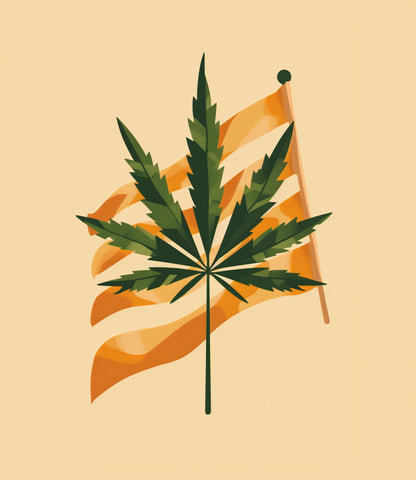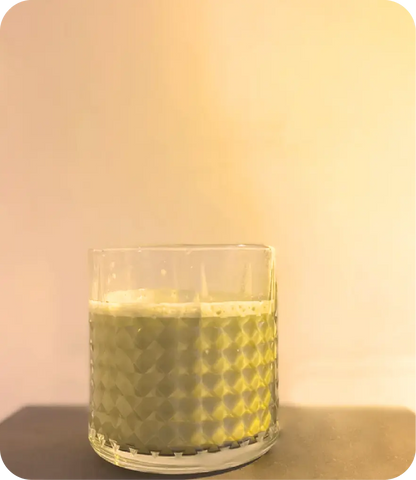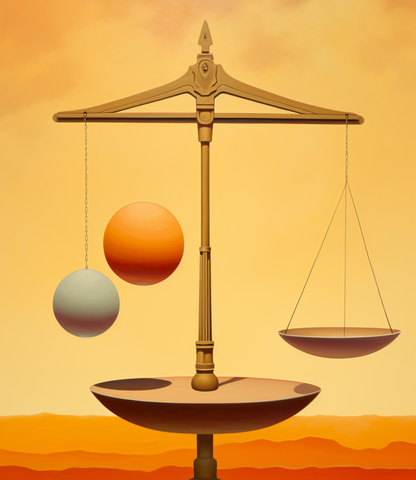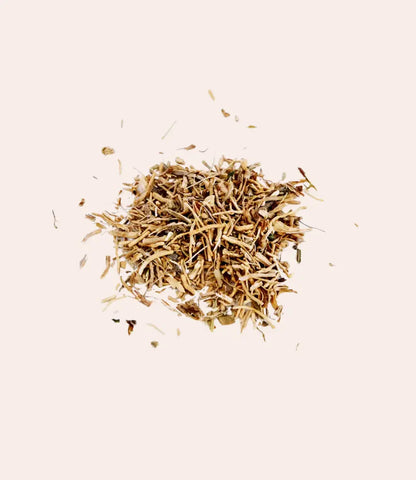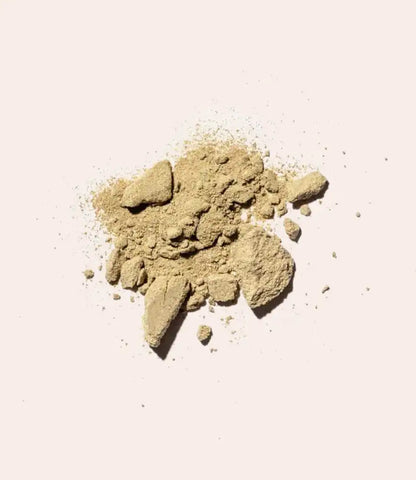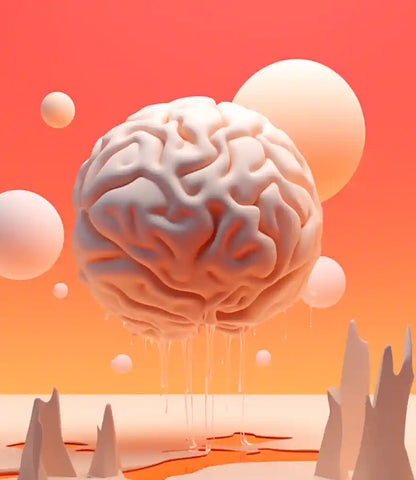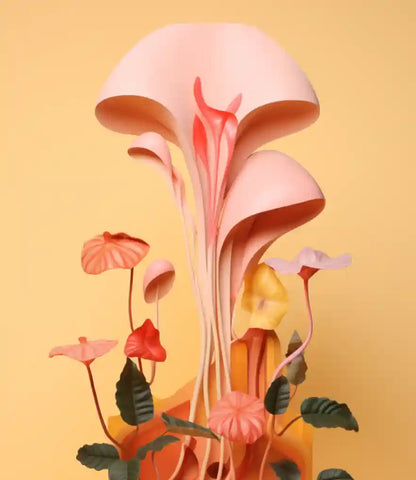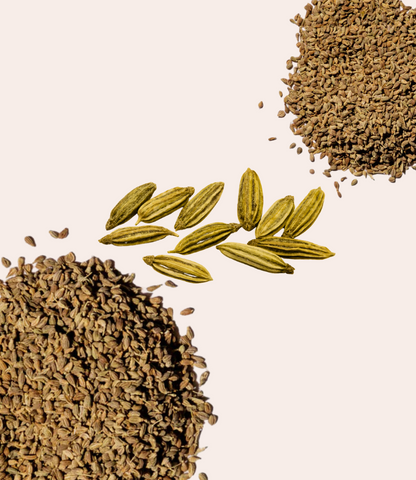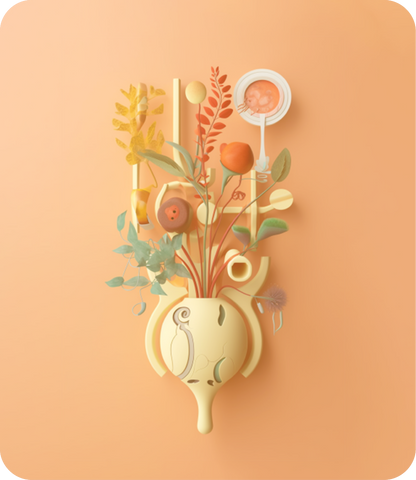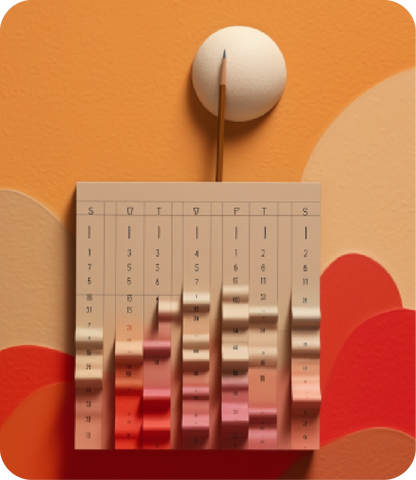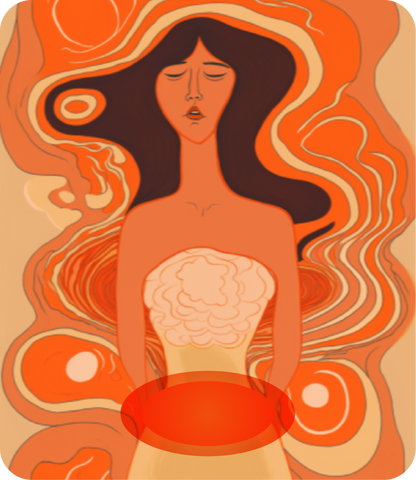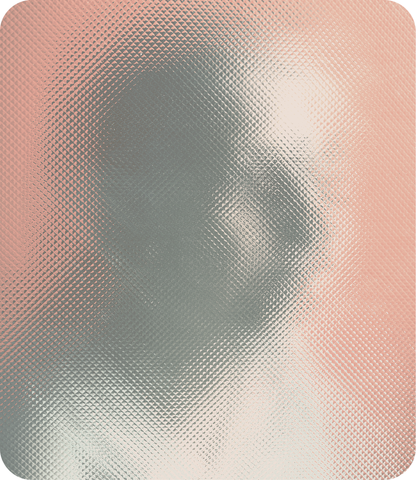
PMS Myths 101
The taboo around hormone imbalance, periods, and womb health has, and still, makes our experiences with our own bodies difficult to talk about. Even though menstrual cycles are as natural as breathing, global conversations are only scraping the surface when it comes to acknowledging them.
Women and people with periods feeling like they must hide their menstrual products, be embarrassed by blood, or even be afraid to talk to their partners about their cycle are all products of stigma. Fear of embarrassment, feelings of shame of what our wombs do, and discouragement of acknowledging painful symptoms lead many to silence. We live in a world where there are communities and rhetoric that still deny the existence of premenstrual syndrome (aka PMS). However, 75% of women and people with periods globally would like a word with these naysayers!
Related to: The Science Behind PMS
“It doesn’t exist” and “It isn’t that serious” We’ve all likely heard many things about PMS, including countless myths about it. The term ‘PMS’ was first coined by British doctor Katharina Dalton in 1957. Premenstrual Syndrome (PMS) refers to the physical and psychological symptoms experienced by women and people with wombs b menstruation. These symptoms are onset by a change in hormones—specifically, estrogen and progesterone. Some experience bloating, food cravings, abdominal pain, irritability, fatigue, and or anxiousness during this time.
Origins of PMS Myths
Ideas consistent with women and wombs meaning weakness or unworthiness have been embedded into societal discourse for centuries. These myths have origins in patriarchy, religion, politics, and health care. For example, some global belief systems, including the Abrahamic religions (Judaism, Christianity, Islam), have influenced perceptions of menstruation as impure. The medical field has had no small part in the stigma, either. In 1875, the male physician A. F. A King circulated information within the medical field about his belief of ‘menstruation being problematic and unnatural’. He claimed that constant reproduction was the “best” method of curing the “abnormal congestion” he seemed to believe menstrual bleeding indicated. (He also erroneously claimed that Hindu women never menstruated but… that’s a story for another time.) These dated patriarchal claims have deep roots in sexism and control and continue to affect the contemporary understanding of womb health. From women being looked at as tainted for menstruating to being considered incapable o leadership positions, it gets deep.
Related to: Bodies that bleed & bodies that don´t
PMS Myths Are Harmful
PMS myths, like many opinions, are based on personal philosophy and or politics. They aren’t based on true research or lived experience, thus making them very harmful. Many experiences are erased when we allow ignorance of myths to take center stage in conversations about menstrual cycles. Therefore having these conversations about our cycles is crucial. We have to create space; we have to normalize our bodies and what they do.
There are so many PMS myths but we’ll cover three major ones you’ve probably heard:
Myth # 1 - PMS Is Just Mood Swings
PMS is a cluster of dualistic symptoms. Do some people experience mood swings? Yes. But that isn’t the totality of PMS. Hormonal fluctuations can result in emotional highs and lows but that is just scratching the surface. These fluctuations control physical, psychological, and emotional changes as well. There are physical symptoms that may be triggered during this time that aren’t coupled with emotion.
Myth # 2 - PMS Is the Same for Everybody
PMS is not a cookie-cutter experience; all wombs are different. For starters, not everyone experiences PMS. Some bodies do, and some bodies don’t. But even for the ones that do, physical experiences of pain or aches may be the main challenge faced while for someone else balancing their emotions is paramount. Diet, genetics, environment, and physical makeup all play a role in how we may or may not experience PMS.
Myth # 3 - PMS Makes You Incapable
From politicians trying to count women out of running for simply having wombs to people seeing any kind of emotional expression from women meaning she is menstruating, mainstream discourse tries to deny the agency of people with wombs. As is widely known today, the term ‘hysterical’ comes from the Greek husterikos, ‘of the womb.’ People who do not know the experience of menstruating often try to reduce PMS to a time w women become poor decision-makers, unstable, and foggy-minded. While some women may experience severe symptoms or have issues that can cause fatigue, it isn’t inherently a condition that should interfere with everyday life. If the symptoms are sufficiently severe to interfere with normal living, one should see a doctor about possible other imbalances (endometriosis is a big one that is often overlooked, as is PCOS), or try natural remedies that have been used by medicine people for millennia. Of course, you should not feel shame or l just because you are in a hormonal flux or feel pain. Women and others with wombs are fully capable of being leaders, in positions of power, and making significant decisions.
The bottom line is that everybody is different. Every womb is different. PMS myths are harmful to all who menstruate. Aside from generally being inaccurate (and annoying af), they can make women feel discouraged, unseen, dirty, ashamed, misunderstood, and othered. We are not weak, less capable, or hysterical. We are magical, resilient, and strong. PMS being singular, moody, and debilitating are only a few major myths among many. Above all, having conversations about our cycles, whether it be about discomforts or flows, is liberating.
Related to: How does period syncing work?Sources
Jayashri Kulkarni Professor of Psychiatry. (2021, November 4). PMS is real and denying its existence harms women. The Conversation. Retrieved January 14, 2022, from https://theconversation.com/pms-is-real-and-denying-its-existence-harms-women-11714
Premenstrual syndrome (PMS). Premenstrual syndrome (PMS) | Office on Women's Health. (n.d.). Retrieved January 14, 2022, from https://www.womenshealth.gov/menstrual-cycle/premenstrual-syndrome#references
Menstruation, religion and Society - IJSSH. (n.d.). Retrieved January 14, 2022, from http://www.ijssh.org/papers/296-B00016.pdf
Google. (n.d.). The san francisco western lancet. A Journal of Practical Medicine and Surgery. Google Books. Retrieved January 14, 2022, from https://books.google.com/books



